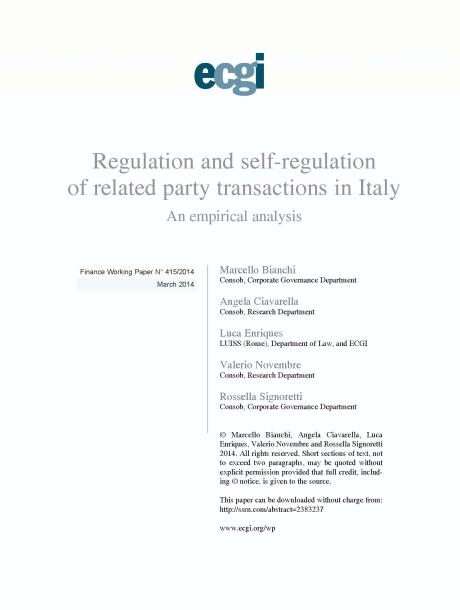
Regulation and self-regulation of related party transactions in Italy: An empirical analysis
Abstract
This paper assesses how Italian companies have implemented the regulation on related party transactions enacted by Consob in 2010. Companies have been given some degree of freedom in devising their internal codes: they may ?opt-up? or ?opt-down? from some of the default provisions set forth in the regulation, thus tailoring internal codes to their own individual needs. We investigate how firms have made use of these options, building an ad hoc firm-specific indicator which focuses on five key provisions. We find that the options we focus on have been taken advantage of in a variety of ways. We also verify the hypothesis that firms adopt stricter/looser procedures depending on corporate governance characteristics. While non-controlled firms seem to have set up stricter procedures, among controlled-companies those where a single shareholder or a coalition holds a stake lower than 50% of voting and cash flow rights have weaker procedures. Finally, while a higher presence of independent directors does not seem to play a role, the presence of a director nominated by institutional investors is positively correlated with stricter procedures.






